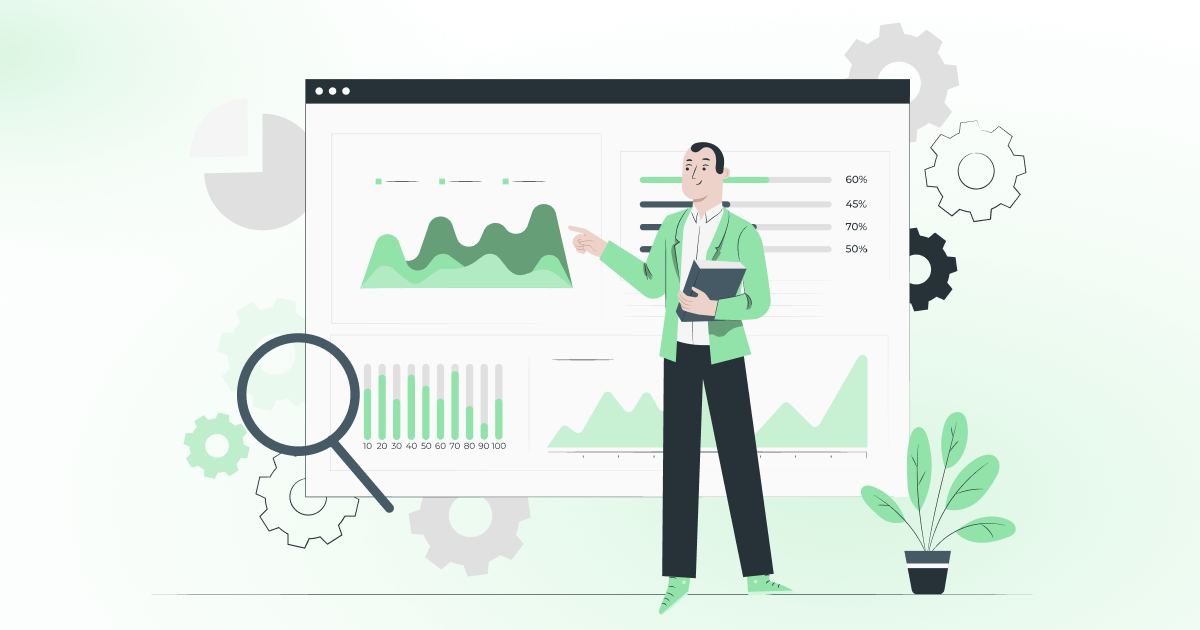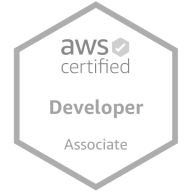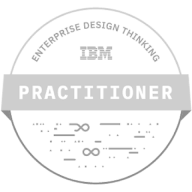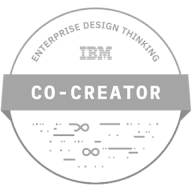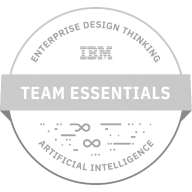
Want to know more? — Subscribe
Artificial intelligence technology has continued its relentless march forward in 2023. AI trends fundamentally transform numerous industries, from healthcare to transportation. Even more seismic advances in AI seem imminent as we look towards 2024 and beyond.
Several key AI capabilities on the horizon have the potential to revolutionize how humans live and work. Self-supervised learning methods minimize reliance on labeled training data, enabling new use cases. These systems, like AI chatbot technology, become more adept at language, speech, visual, and multimodal understanding tasks.
2024 may finally be the year AI matches human performance in the most complex strategic domains. Softermii, with nine years of experience in the industry, explores the latest AI trends, along with ones that are yet to come. 2024 promises to be exhilarating, and we must thoughtfully guide its progress to maximize benefits and mitigate risks.
AI Technology Boom in 2024
A significant boom in AI technology is characterizing the year 2024. Nowadays, AI systems have started to process complex tasks more efficiently with the emergence of powerful GPUs and specialized AI chips.
Precedence Research reported that the global AI market is forecast to see rapid growth in the coming years, and has already reached more than half a trillion U.S. dollars in 2023. It is expanding at a remarkable compound annual growth rate (CAGR) of 19% from 2023 to 2032. This surge is driven by continuous research and innovation and a growing increase in computing power and investments directed by tech giants.
Companies recognize the competitive advantages that new AI technology can bring. The ones are improved efficiency, enhanced customer experiences, and data-driven decision-making. As a result, experts predict that AI will reshape industries. It creates new opportunities and drives innovation in the coming years.
The Latest AI Technology Trends You Should Follow
AI technology continues to revolutionize various industries and shape the future of innovation. Staying updated with the latest trends in AI is crucial to harness its power. We will explore the latest advancements and discover how these technologies are transforming industries.
Generative AI
Generative AI enables machines to generate new content, such as images, music, or text. This trend has found applications in various industries. It is being used in creative fields like design and art, as well as in content generation and data synthesis. One notable example of generative AI is OpenAI's GPT-3 language model. The release of ChatGPT demonstrated impressive capabilities in generating coherent and relevant text, showcasing the advancements in building a large language model.
Google is revolutionizing search by using generative AI. It helps improve the search experience by providing more accurate and personalized results. Google can better understand user queries and deliver more relevant responses in real time. The latest Artificial Intelligence technology goes beyond simple keyword matching. LLM enables companies to provide tailored information that matches user intent. With this innovation, Google is making search smarter and more intuitive. It becomes capable of delivering relevant and customized results.

The Democratization of AI
The democratization of AI aims to make technology accessible to a broader audience. It empowers individuals and organizations to leverage their potential without extensive programming knowledge. Great examples are initiatives such as AutoML and no-code AI platforms. They allow non-experts to develop AI models and solutions.
Create ML by Apple is a tool that simplifies the process of creating machine learning models. It falls under the category of low-code AI because it reduces the amount of coding required. Developers can now build AI models using a visual interface and pre-built tools. There is no need for extensive coding knowledge and algorithms for their startups. Create ML enables developers to prototype and deploy ML models for their apps easily.
Embracing Collaborative AI
Collaborative AI emphasizes the symbiotic relationship between humans and AI systems. It recognizes that both entities can work together to achieve better outcomes. Collaborative robots, or cobots, are revolutionizing industries such as manufacturing and healthcare. These robots augment human capabilities, improve efficiency, and enhance safety.
One of the great examples is the project management tool Asana. It incorporates collaborative AI features to streamline team collaboration and task management. It allows users to create projects, assign tasks, set deadlines, and track progress. With AI-powered automation, Asana helps automate repetitive tasks and send reminders. It also makes smoother collaboration among team members.
AI-based Cybersecurity
Organizations may fund AI to enhance their threat detection and response capabilities. AI-powered security models can analyze log data generated by AI systems. Thus, it can identify suspicious activities or patterns that show potential cyber-attacks. These models can alert security teams in real time, enabling them to mitigate risks.
Intelligent automation is revolutionizing cybersecurity by automating various security processes. AI algorithms can streamline identity and access management systems. It grants or revokes user privileges based on predefined rules and behavior analysis. It improves efficiency and minimizes the risk of unauthorized access and data breaches.
What's more, AI technology enables organizations to leverage threat intelligence and predictive analytics. AI algorithms can identify emerging threats and vulnerabilities. It analyzes historical data, identifies patterns, and correlates information from various sources. It empowers organizations to take preemptive actions and strengthen their security posture.
Fortinet FortiAI is an AI-based cybersecurity solution by Fortinet. It uses machine learning to detect and stop threats by analyzing network activity. FortiAI can identify and respond to security incidents effectively. It provides proactive threat intelligence and automated threat response. This way, the solution improves the security of organizations. They can better defend against cyber threats and safeguard their valuable assets.
Using the Potential of Conversational AI
Conversational AI enables machines to engage in natural language conversations. It provides personalized and human-like interactions. This technology has applications in customer support, healthcare, and other sectors.
Babylon Health (now a part of eMed Healthcare) employs generative AI for healthcare through Natural Language Generation techniques. Their chatbot allows users to have natural language conversations and get medical advice. Patients can also book appointments and access health information. The AI assistant understands user queries and provides accurate responses. This way, healthcare services become more convenient and accessible. Moreover, it empowers people to take control of their health.
Prioritizing Ethical and Transparent AI
The current trend in artificial intelligence is that technology has become more pervasive. Thus, it's crucial to ensure ethical and transparent AI practices. They aim to address biases, privacy concerns, and the responsible use of AI technology. Regulations focus on ensuring fairness, protecting user privacy, and promoting responsible AI deployment.
Meta (formerly Facebook) uses AI algorithms to detect and remove harmful content. It includes hate speech and misinformation. These algorithms help ensure a safer and more reliable experience for users. Meta aims to enhance its AI systems for better content moderation. This way, the company improves its platform's user experience.
Intelligent Automation Solutions
Intelligent automation uses AI to streamline and optimize processes across industries. It achieves this by automating repetitive tasks and augmenting human decision-making. As a result, intelligent automation can improve efficiency and productivity.
UiPath offers a range of intelligent automation solutions. They include Robotic Process Automation, Artificial Intelligence, and Data Science capabilities. Their platform enables organizations to automate repetitive tasks and streamline workflows. It also improves the operational efficiency of business processes.
The Intersection of Quantum Computing and AI
The convergence of quantum computing and AI holds immense promise. It enables the solving of complex problems that traditional computing cannot handle. Quantum AI algorithms can speed up data analysis, optimization, and pattern recognition. It enables breakthroughs in drug discovery, financial modeling, and climate science.
IBM is at the forefront of quantum AI research and development. They have created the IBM Quantum Experience platform. There, developers and researchers can now experiment with quantum computing. IBM is also working with partners and academic institutions to advance quantum technology. They aim to bring revolutionary changes in healthcare, finances, cybersecurity, etc.
Industries That Use AI the Most in 2024
AI adoption is soaring across various industries. In 2024, industries like fintech, healthcare, and retail are undergoing major transformations. The manufacturing and transportation sectors are also undergoing similar changes.
Fintech is utilizing AI for fraud detection, personalized banking experiences, and algorithmic trading. For example, PayPal utilizes AI algorithms to detect and prevent fraudulent transactions. Their AI-powered fraud detection system analyzes transaction patterns, user behavior, and other data. It helps them to identify suspicious activities and protect users from financial fraud.
What are the IT trends in healthcare with the use of AI? AI-driven diagnostics drug discovery and patient monitoring systems are improving patient outcomes. AI-powered IBM's Watson for Oncology assists doctors in cancer treatment decisions. It analyzes vast amounts of medical literature, patient records, and treatment guidelines. The system recommends treatment based on the patient's condition and medical history.
Retailers leverage AI for demand forecasting, inventory management, and personalized customer experiences. Amazon is famous for its AI-powered recommendation engine. It analyzes customer browsing history, as well as other behavioral data. Amazon suggests personalized product recommendations, enhancing the shopping experience and driving sales.
Manufacturers are optimizing production processes and supply chain management with AI. Siemens employs AI in its manufacturing processes to optimize production efficiency. Their AI-based systems analyze real-time data from sensors embedded in manufacturing equipment. It enables predictive maintenance to reduce downtime and maximize productivity.
Transportation companies are implementing AI for route optimization, predictive maintenance, and autonomous vehicles. Waymo, a subsidiary of Alphabet Inc. (Google's parent company), is a leading player in autonomous vehicle technology. Waymo's self-driving cars use AI algorithms to perceive their surroundings and navigate safely.
The Future of AI Trends
The future of AI industry trends will lead to significant advancements. It is also expected to drive transformations across various industries. Let's explore some key aspects that will shape the future of AI:
Predictions for the Future and Emerging Trends in Artificial Intelligence
In the coming years, AI will continue its rapid growth. The emerging trends are explainable AI, AI-driven automation, and edge computing. Moreover, the AI-enabled Internet of Things (IoT) is taking center stage. Artificial intelligence future trends will enable systems to become more accessible. It will also make them more integrated into everyday life. Imagine the changes in revolutionizing sectors like healthcare, transportation, finance, and customer service.
Potential Societal Impact and Challenges Ahead
The increasing integration of AI into society raises important considerations. People start questioning ethics, privacy, and employment. It is necessary to address biases in algorithms and ensure transparency and accountability. The same applies to privacy concerns related to data collection and usage. Furthermore, the impact of AI on the job market necessitates proactive measures. It is crucial to reskill and upskill individuals to thrive in an AI-driven economy.
Opportunities for Individuals and Businesses
The future of AI presents lots of opportunities for individuals and businesses alike. AI technologies can streamline operations and enhance decision-making processes. It unlocks new avenues for innovation and growth. The news is that businesses that embrace AI stand to gain a competitive edge. They can leverage data-driven insights, provide personalized customer experiences, and improve operational efficiency. Individuals can seize opportunities in AI-related roles: AI engineers, data scientists, and ethicists. They may contribute to the development and responsible implementation of AI technologies.
Conclusion
AI capabilities that were impossible just years ago now seem within practical reach. Using powerful AI models brings big opportunities and responsibilities for all kinds of organizations. The future remains uncertain, but it's evident that top companies worldwide know that adopting ethical AI practices gives them a competitive edge. Teaming up with knowledgeable AI experts helps you use AI safely and strategically.
Softermii has over a decade of expertise building custom AI solutions across various industries. Want to discover how to harness advanced AI capabilities in 2024? Contact our team to explore the possibilities and responsible path forward.
The future of AI in 2024 and beyond promises to be an exciting ride. Are you ready for it?
Frequently Asked Questions
How can organizations stay updated on the latest artificial intelligence trends?
They can stay updated on the latest trends by following reputable industry publications. Another option is attending video conferences and webinars and engaging with AI experts.
What are the types of AI algorithms and models used in the latest trends?
The latest technology and business trends in AI use various algorithms and models. It includes deep learning neural networks and reinforcement learning. The same goes for NLP and generative adversarial networks.
Does the cost of implementing AI increase as its popularity grows?
The cost depends on the complexity of the project and specific requirements. Of course, some AI tools and platforms have become more accessible and affordable. Yet, larger-scale AI implementations may need significant investments. It may include infrastructure, data management, and talent acquisition.
How is AI shaping the healthcare industry in 2024?
AI provides more accurate diagnostics and personalized treatment plans. It also includes efficient patient monitoring systems and improved drug discovery processes. AI-powered technologies are revolutionizing patient care and enhancing healthcare outcomes.
What are the potential ethical challenges associated with AI adoption?
Ethical challenges in AI adoption include concerns about bias in algorithms and data privacy. Other ones are the transparency of AI and the potential displacement of human workers. Addressing these challenges requires robust ethical frameworks and ongoing dialogue between stakeholders.
How about to rate this article?
178 ratings • Avg 4.7 / 5
Written by:











